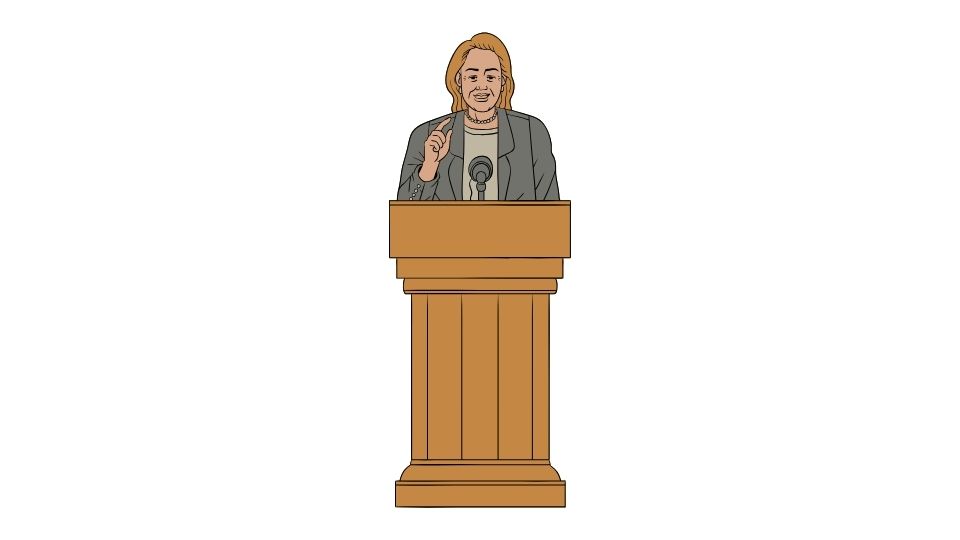Ever thought about running for office? Maybe you’re passionate about fixing potholes on Main Street, or maybe you dream of someday giving the State of the Union address. Either way, you’re probably wondering what kind of education you need to get there.
Good news! There’s no specific degree legally required to become a politician. Bad news? Most successful politicians do have at least a bachelor’s degree – typically in fields like political science, law, or economics.
Let’s break down what education actually helps in politics, what degrees give you the best shot, and how to build a path to public office that works for you.

Education for Politicians: What You Actually Need to Know
While your local dog catcher might have dropped out of high school (no judgment), most politicians at the state and federal level have at least a bachelor’s degree. Many go further with master’s degrees or law degrees to deepen their expertise and signal their qualifications to voters.
But let’s be real – politics isn’t just about classroom learning. It’s about experience, connections, and understanding what makes people tick. Your degree is just one piece of the puzzle.
Common Degrees for Future Politicians

Political Science
This is the obvious choice if you’re aiming for politics from the start. Political science programs teach you about:
- Government structures and functions
- Political theory and philosophy
- Public policy analysis
- Electoral systems
- International relations
You’ll develop research skills, learn to analyze policies, and understand how government actually works (or doesn’t work, depending on your perspective). A study from the Congressional Research Service found that political science remains one of the most common backgrounds for members of Congress.
Law
The classic politician’s degree. About 40% of Congress members have law degrees. Why? Because law school teaches you to:
- Understand legal frameworks and how legislation works
- Think critically about complex issues
- Make persuasive arguments
- Understand constitutional limits
- Draft precise language
Plus, that “Esquire” after your name looks pretty good on a campaign sign.
Economics
Want to sound smart talking about the budget? An economics degree gives you the tools to understand:
- Fiscal policy
- Taxation
- Public finance
- Economic impacts of legislation
- Cost-benefit analysis
According to the National Conference of State Legislatures, politicians with economics backgrounds often serve on budget and finance committees.
International Relations
If your political ambitions have a global focus, international relations provides:
- Understanding of diplomatic protocols
- Knowledge of global institutions
- Cross-cultural communication skills
- Foreign policy frameworks
- Conflict resolution approaches
History and Philosophy
Don’t underestimate the power of these “classic” degrees. History helps you understand how we got here, while philosophy sharpens your ethical reasoning and debate skills. Both make you sound wise at town halls.
Business
A business degree signals practical leadership experience and can help you:
- Manage teams and resources
- Understand organizational behavior
- Make data-driven decisions
- Communicate with the private sector
Building Your Political Education Path

High School
Start laying groundwork with:
- Government and civics classes
- Debate team (future speech practice!)
- Student government
- Community service
- History and economics courses
College (Bachelor’s Degree)
This is where your political foundation gets built:
- Choose a major relevant to your interests (see above)
- Take courses in statistics and research methods
- Participate in student government
- Join political clubs
- Intern with local government or campaigns
The American Political Science Association emphasizes that internships are critical for building practical experience alongside classroom learning.
Graduate Education (Optional but Helpful)
For higher offices, consider:
- Master’s in Public Administration (MPA)
- Master’s in Public Policy (MPP)
- Law degree (JD)
- MBA for business-minded politicians
Fun fact: Only about 1% of politicians have PhDs. Turns out voters don’t necessarily want someone who spent 7 years writing about obscure political theory.
Beyond the Classroom: What Really Makes a Politician

Let’s be honest – your degree gets you in the door, but these factors matter just as much:
Real-World Experience
Voters connect with candidates who’ve done things outside the ivory tower:
- Military service
- Small business ownership
- Community organizing
- Teaching
- Healthcare work
Political Networking
Politics is all about relationships. Start building them through:
- Volunteering for campaigns
- Joining local party committees
- Attending community meetings
- Working for elected officials
- Building a social media presence
According to research from the Eagleton Institute of Politics, networking is often cited as more important than formal education by successful politicians.
Essential Skills (Degree or Not)
No matter what you studied, you’ll need:
- Public speaking abilities
- Fundraising skills (nobody teaches this in school!)
- Conflict resolution approaches
- Media management expertise
- Crisis communication techniques
How to Actually Become a Politician

Now for the practical steps:
- Get educated – Aim for at least a bachelor’s in a relevant field
- Build local connections – Politics starts at home
- Volunteer for campaigns – Learn the ropes from the inside
- Start small – School board, city council, or party committee
- Find mentors already in politics
- Develop a personal brand that connects with voters
Remember: AOC was a bartender with a political science degree before becoming a Congresswoman. Pete Buttigieg studied history and literature before becoming Transportation Secretary. Your path doesn’t have to be linear.
The Bottom Line
While there’s no required degree to run for office, education clearly matters in politics. A relevant bachelor’s degree gives you credibility and knowledge, and advanced degrees can open more doors.
But the most successful politicians combine their education with real-world experience, strong networks, and the ability to connect with voters.
So yes, study political science if that’s your passion – but don’t think a degree alone will get you elected. The best preparation for politics is actually getting involved, building relationships, and understanding the communities you hope to serve.
And the most important qualification? Actually caring about making things better. No degree required for that.




